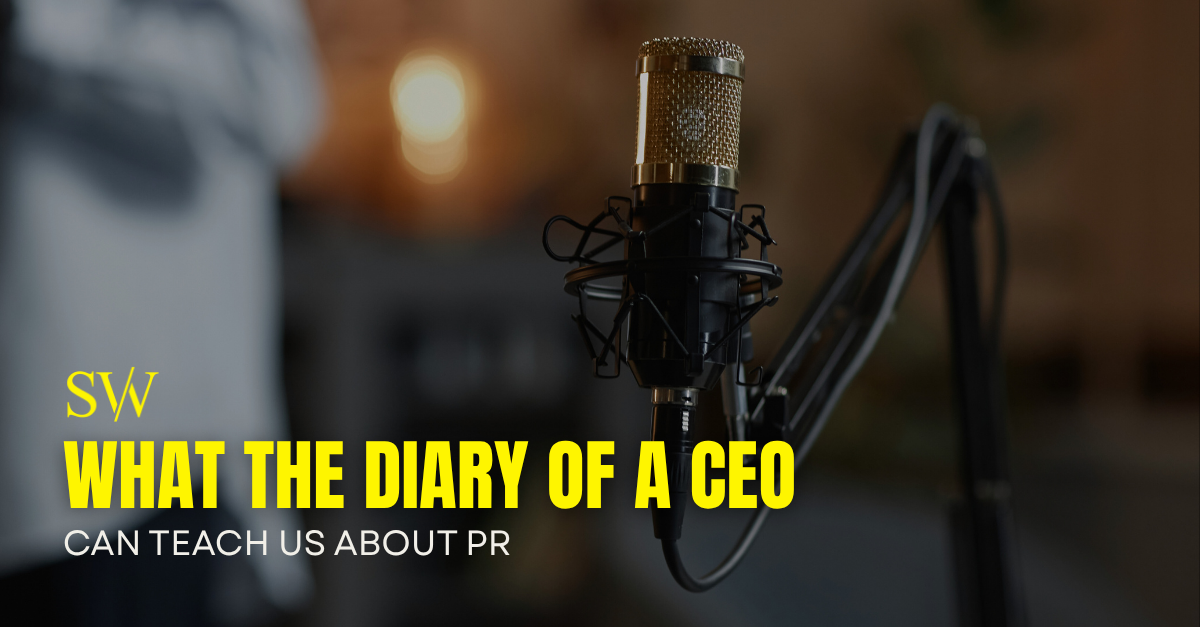
Newsroom
What The Diary of a CEO Can Teach Us About PR

There’s no shortage of leadership podcasts out there, but The Diary of a CEO does something different. This is not your run-of-the-mill interview; this is a conversation that strips back the layers of image, title, and polish to reveal what’s real. And in the world of public relations, that kind of honest storytelling is worth paying attention to.
Steven Bartlett has built a platform that’s part therapy session, part strategy seminar, part reputation clinic. And people can’t stop listening. Why? Because he understands that in a world where everyone is talking, the real power lies in knowing what to say, how to say it, and when to stay silent.
This is where modern PR lives: in intention, tone, and trust. (If you had a rand for every time you heard me drop that ‘T-Bomb’)
The Diary of a CEO reminds us that people no longer want to be marketed to. They want to feel something. They want meaning, not messaging. They want to hear from leaders who are not just prepared, but present.
Whether you’re leading a startup, a listed company, or your personal brand, here’s what I believe we can all take away from Steven Bartlett’s approach to communication:
1. Vulnerability is your credibility
People connect with people, not job titles. When leaders share honestly, not theatrically, but truthfully, they build trust. And trust is the currency of communication. (Another rand in the piggy bank!)
2. Silence is not weakness
One of the most powerful tools Bartlett uses is the power of a ‘pause.’ He lets moments breathe. In PR, we often forget that not every gap needs to be filled. Sometimes, silence speaks volumes, if it’s intentional.
3. Stories stick. Stats don’t.
Data informs. Stories move. Every episode is a masterclass in narrative. Your audience will forget the figures, but they’ll remember the story that made them feel something.
4. Consistency builds reputation
Steven doesn’t chase virality; he shows up week after week with purpose and clarity. That’s what PR should do too. Loud is not a strategy. Reliable is.
5. Speak to connect, not perform
Media training is not about memorising lines. It’s about anchoring your message in your truth. Whether it’s an interview or an internal update, your job isn’t to perform; your job is to resonate.
In PR, we often look at the headlines to see who made news, who got coverage. But in today’s landscape, attention alone is not the win. Trust is. Connection is. Conversation is.
You don’t need a podcast mic to build a reputation that matters. You just need to learn how to communicate with courage and clarity.
That’s where we come in.

